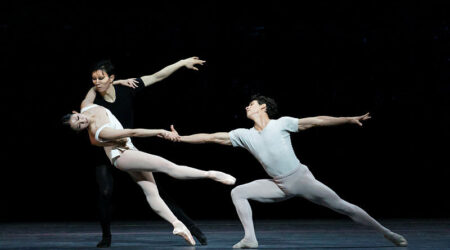The Funny Side of France
In Europe, every country is known for its particular attributes. France, for instance, is known for fashion, food, wine, Paris, and rubbing other countries the wrong way. Paris is often considered to be synonymous with undefeated elegance, culture, and intelligence. Naturally, tourists go to Paris expecting exactly that: pure untainted refinement. Every now and then, […]
In Europe, every country is known for its particular attributes. France, for instance, is known for fashion, food, wine, Paris, and rubbing other countries the wrong way. Paris is often considered to be synonymous with undefeated elegance, culture, and intelligence. Naturally, tourists go to Paris expecting exactly that: pure untainted refinement. Every now and then, however, foreigners catch a glimpse of a side of the French that’s less publicized – a sense of humor. Over the years, I’ve encountered aspects of this culture that make me giggle, even when that’s not the point.
Many might find themselves in serious need of comedic relief after a twenty minute metro ride packed past legal capacity of frowning miserable commuters who seem to shoot death rays at the slightest accidental eye contact. Unfortunately, Paris is not London or Cologne, so haphazardly stumbling into a funny and friendly situation ironically requires effort. These somewhat hidden aspects of the culture may not be funny to the locals, but definitely worth a grin from foreigners.
1. Parisian Firefighters
These men generally look serious, as one might expect, which is why I was so surprised one day while passing my local fire station to find these serious men dousing their fire truck with water while blasting the latest dance music. In the background, I could see a few of them dancing, or at least I think that’s what they were attempting. I continued to pass this little spectacle every day that week, and finally I had to ask someone what was going on. Was this considered typical?
Apparently, firefighters hold an annual ‘’Firefighter’s Ball’’ to raise money. Each of the twenty districts of Paris has a separate fire station and each one is expected to participate in a friendly competition to host the best ball. Flyers are sent out around the city advertising the different venues offered by each station and this way the most interesting one will attract the most guests. There is a cover charge and drinks are expensive, but this is how they raise money for new equipment and general upkeep in the stations. This is important because fire fighters actually live with their families in their stations, which look and operate more like apartment buildings. Some stations put together musical acts, others create a club atmosphere, while others really go all out. For example, one year the station of the third district of Paris, (which is considered the Castro district of Paris) members of the station actually dressed up as go-go dancers and strutted their stuff in front of many satisfied men and women. Needless to say, that station won that year.
2. On the Beaches of… Paris?
Taking a summer vacation seems to be the birth right of every French person, but not everyone can drop everything for three solid months in order to lounge on the beach. Thankfully, Parisians have come up with a solution for this depressing predicament: they make a fake beach every year on the quay of the Seine river in three different locations throughout the city: Voie Georges Pompidou, Parvis de l’hotel-de–Ville, and Basin de la Villete. The most popular manufactured beach is in the fourth district near the Pont Neuf bridge, including a view of the Eiffel Tower. Starting July 19th through August 17th city dwellers try to recreate their holiday beach getaways by lying on the sand-covered cement, basking in the sun with bathing suits, sun block, sun umbrellas, and light picnics to make the experience more authentic. Throughout the summer months, the city also throws spring break-style concerts and parties. I suppose Californians take the sunshine for granted if this is how societies lacking in sunshine most of the year react to it.
3. Asterix
The popular Belgian comic series has won the hearts of the French nation as evidenced by everything from French films to an entire theme park dedicated to the characters just outside of Paris. What many people (including the French) do not know, is that the series is based off of historical events from as early as 500 A.D. when France was made up of several different languages, cultures, and territories. These comical characters and their adventures are based on the inhabitants of what is now a French region called Brittany. Long before France formed into the country we know it to be today, the region of Brittany was referred to as the Gaul. This region was under constant attack for dominance from all sides. When the Gauls (now called Bretons) did fight, they were recorded to do so only after getting drunk. In the comic series, the characters drink ‘’a magic fighting potion’’ before each battle; this so-called magic potion is historically alcohol. Unfortunately, this is still a common trait amongst Bretons when faced with anything stressful or unpleasant.

4. BBQ Politics
The pinnacle of adulthood for me and my friends growing up was the ability to do and eat what we wanted whenever we wanted, as long as we weren’t breaking any laws. Imagine the frustration of finally reaching a point in life when you own your own property, just to be told on a rare warm day in France that your menu is dictated by your neighbors. It turns out that in France, your neighbors not only decide how often you barbecue, but also what you choose to put on the grill. I wanted something quick and easy, so naturally I threw some chicken and an assortment of vegetables on the grill. Once the smoke hit the air, however, out came the villagers, burning torches and all. According to these particular neighbors, I was only allowed to barbecue fish. And not just any fish, only a select few types. I thought that they were joking, however, my ‘’just go with it’’ smirk proved to infuriate them even more. I did some digging after this incident and found that this is not an uncommon occurrence throughout France, even in the South where people are generally more open-minded.
5. Where Are You Allowed to Bring Your Dog, But Not Your Clothes?
Here’s a hint: it involves splinter-ridden wooden benches and insects with no regard to personal space. Everyone knows that France has several designated nudist beaches, but not everyone knows that they also have a large number of nudist camping grounds that look more like spas. The only odd aspect of these nudists camps is that clothing is absolutely not allowed, unlike at nudist beaches. They actually refuse guests entrance if any article of clothing is still being worn. Guests are asked to either leave, or to go back to their cars, remove all clothing and come back to wait in line on a hot humid day centimeters away from strangers in their birthday suits. Once inside, even the children have to remain completely nude or their families are asked to leave. Clearly body-shaming isn’t considered a tangible issue in France.

Cultural differences have a way of sneaking up on foreigners. Most of the time these differences can be frustrating, but now and then there are those anomalies that make one stop and laugh. It’s like the hidden Mickeys interspersed throughout the Disneyland Parks: not worth seeking out, but always a feeling of accomplishment when stumbled upon.
Jacqueline Perrier-Gillette is currently a resident of Paris, France, where she lives with her husband. Together the two of them operate their small translation company, giving Jacqueline the opportunity to observe the French and their culture up close. She is an avid reader, writer, and student of foreign languages.
By Jacqueline Perrier-Gillette





